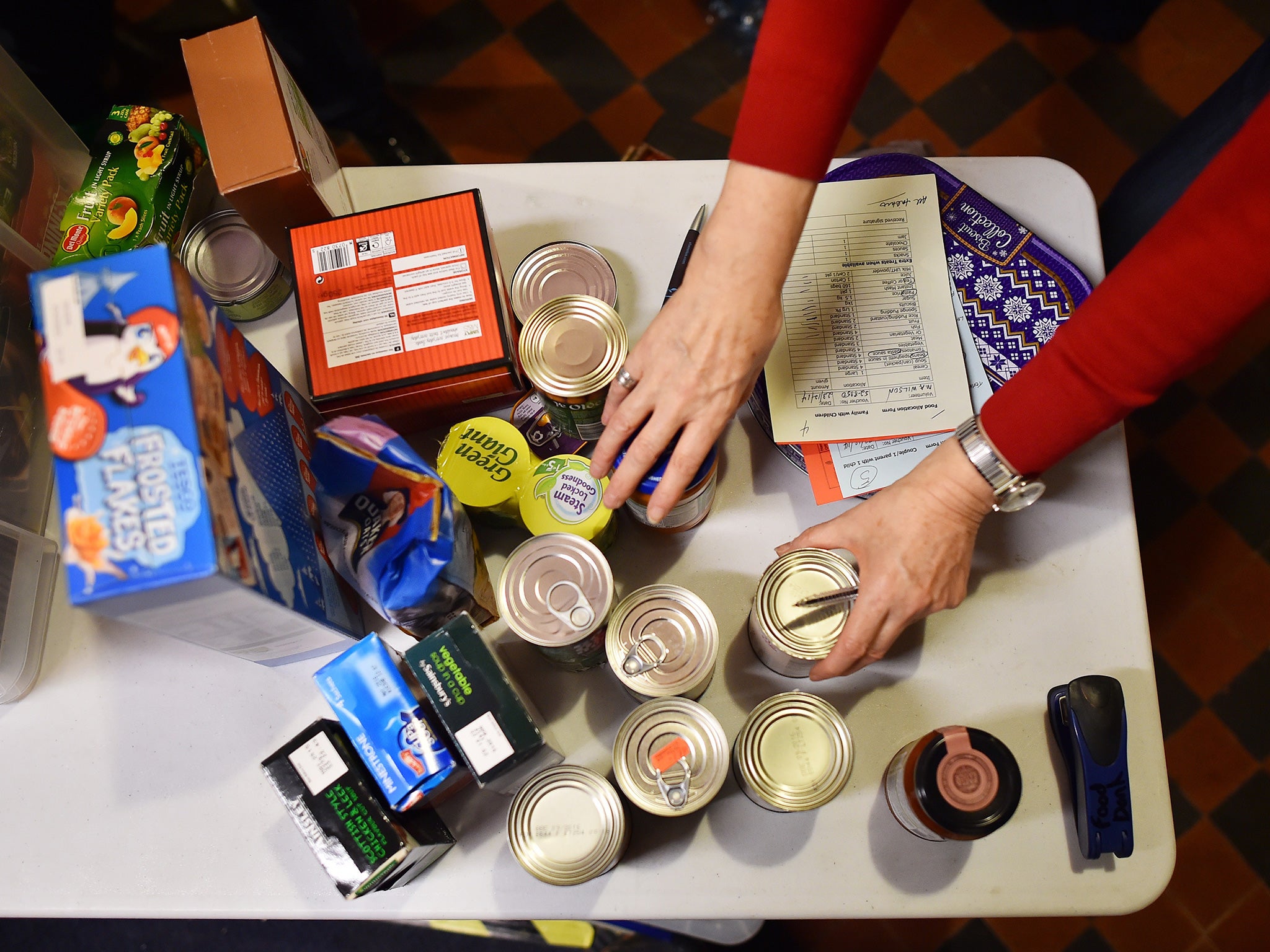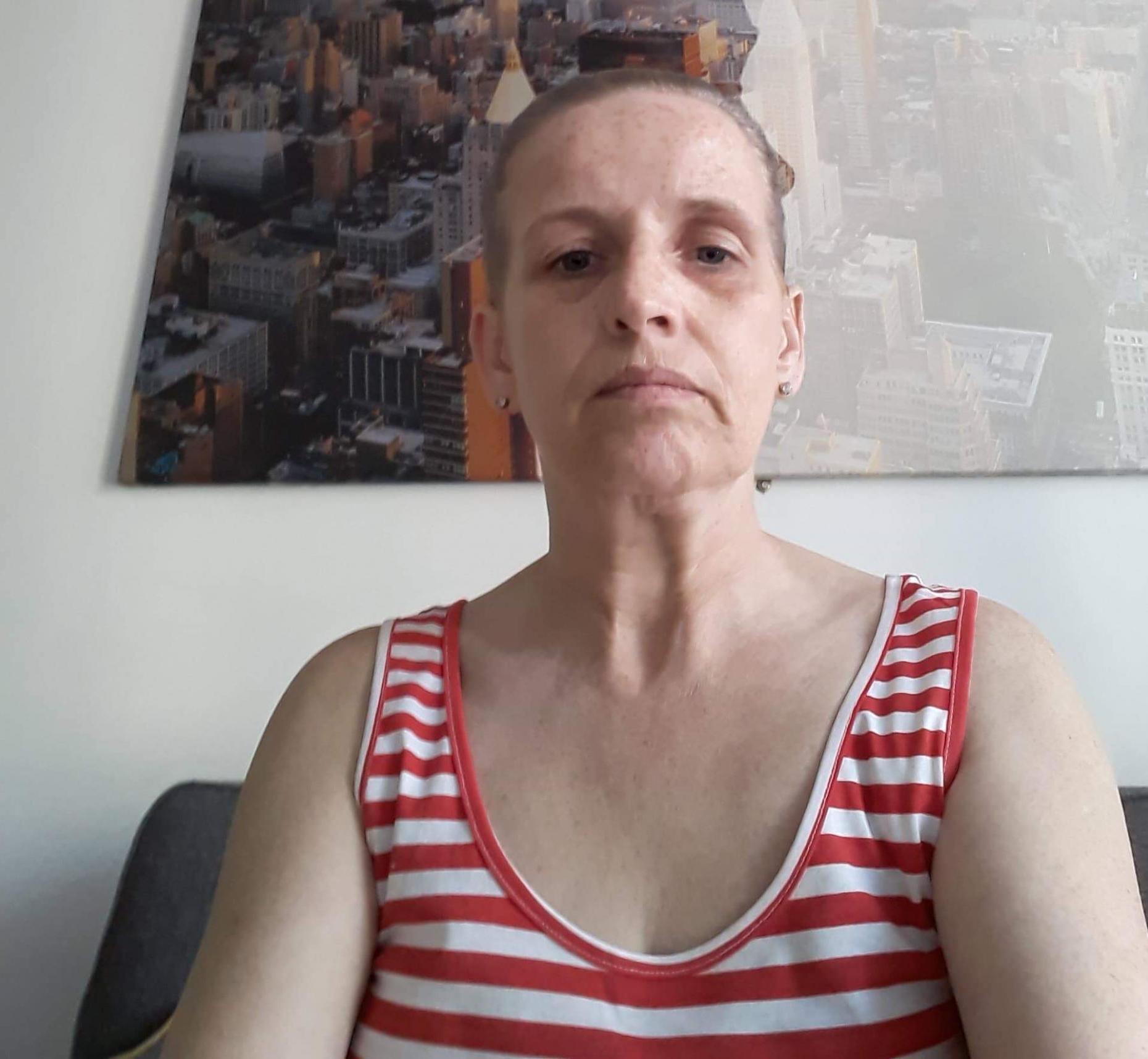Half of sick or disabled people on low incomes experienced food insecurity in 2016, study shows
Food insecurity almost doubles among least well off in five years – prompting concerns of 'hunger crisis' in UK

Your support helps us to tell the story
From reproductive rights to climate change to Big Tech, The Independent is on the ground when the story is developing. Whether it's investigating the financials of Elon Musk's pro-Trump PAC or producing our latest documentary, 'The A Word', which shines a light on the American women fighting for reproductive rights, we know how important it is to parse out the facts from the messaging.
At such a critical moment in US history, we need reporters on the ground. Your donation allows us to keep sending journalists to speak to both sides of the story.
The Independent is trusted by Americans across the entire political spectrum. And unlike many other quality news outlets, we choose not to lock Americans out of our reporting and analysis with paywalls. We believe quality journalism should be available to everyone, paid for by those who can afford it.
Your support makes all the difference.More than half of people who suffered from a long-term illness or disability in 2016 suffered food insecurity, according research which has prompted renewed concerns about a "hunger crisis" in the UK.
The problem, which arises when people cannot afford to buy enough to eat, has almost doubled among the least well off in the last five years, according to the study, published by the British Medical Journal (BMJ).
An analysis of survey data, originally published online in the Journal of Epidemiology & Community Health, showed the rise was even steeper among those living with a longstanding illness or disability – with 53.5 per cent of this group experiencing food insecurity in 2016.
The study, which compared data from that year's Food & You Survey (F&Y) with data from the 2004 Low Income Diet and Nutrition Survey (LIDNS), found that some people were going whole days without eating.
Veronica Woods, 52, who suffers from functional neurological disorder (FND), said she often has to skip meals in order to make sure her children could eat after the government stopped issuing her Personal Independent Payment (PIP) last year.
The mother-of-two, who lives with her two teenage boys, aged 16 and 19, said she had not been able to afford a proper food shop since she was discharged from hospital following a fall caused by her condition two weeks ago.
“We’ve been struggling," she said. "The three weeks I was in hospital I had to take a £250 overdraught so the kids could feed themselves. Going food shopping is not an option at the moment, we just can’t afford it."
Ms Woods, whose husband passed away suddenly four years ago, said that since losing her disability benefit she receives £200 a fortnight in bereavement benefit, £53 a week in child tax credits, and £20 every week child benefit – amounting to just £173 a week.
“My 16-year-old son has been eating pasta and tins of tuna. I try to get eggs, bread and milk – the basics, to keep us going until we can afford to do a big shop. Since I got out on 11 April, I haven’t done a proper food shop. Money has been a real problem,” she added.
“The boys get priority. I’ve skipped a lot of meals. I do feel hungry but there’s too much going on in my head to worry about it. The GP gave me some vitamin drinks – I take one of them instead of a meal.”

Ms Woods, who lives in Manchester, said that after being admitted to hospital her weight dropped from 11 and a half stone to just eight stone over a period of six weeks. She is appealing the decision to stop her PIP, but has been told it won’t be heard until next year.
“I was on the highest rate and they put me on zero. I’ve lost my car. It’s made me not want to go outside. I have good days and bad days – and on the bad days I have seizures and my speech gets messed up. It’s very scary for my children,” she added.
Shadow work and pensions secretary Margaret Greenwood said the “shocking” report highlighted the scale of the UK’s hunger crisis.
“Food insecurity simply should not exist in one of the richest countries in the world. Yet this report suggests that the number of people going hungry is increasing as a result of changes to the social security system,” she added.
The report states that the “rising vulnerability to food insecurity” observed in the survey suggests the “poorest in the UK are worse off today”.
“While the Great Recession also occurred between 2004 and 2016 and may have contributed to a rise in food insecurity at that time, by 2016 the UK was no longer in recession. By contrast, welfare reform continued, the effects of which were keenly felt by those with longstanding illnesses," it adds.
“Food insecurity has certainly always existed in the UK, but in light of the welfare changes that occurred over this period, it is possible the current social security system is providing increasingly inadequate protection from food insecurity for more and more people.”
The researchers who produced the findings cautioned that it was an observational study, and as such cannot establish cause, but that if anything, the observed increase in food insecurity among those on low incomes was likely to be an underestimate.
It comes after figures from the Trussell Trust revealed last week that food bank use had soared to record levels, with the number of emergency supplies distributed across the UK having risen by nearly a fifth in one year,
Genevieve Edwards, director of external affairs at the MS Society, said the charity was increasingly hearing from people with MS that they’ve had to cut back on food and other essentials because of problems with disability benefits.
She added: “More than 100,000 people live with MS in the UK and our research shows 39 per cent of those who lost PIP support spent less on food as a result. We've also heard from people who turned to foodbanks after struggling with universal credit. It’s simply unacceptable that disabled people in the UK today can’t rely on our welfare system to provide the most basic level of financial security.”
Jess Leigh, Policy and Campaigns Manager at disability equality charity, Scope, said the findings were "further shocking indications of the dire impact extra costs can have on disabled people".
She added: “Life costs more in you are disabled [...] Disabled people often have no choice but to spend more on essential goods and services like heating, therapies and equipment.
“We need a welfare system that recognises these extra costs and provides disabled people and their families with the financial support they need.”
A government spokesperson said: “No family should have to experience hunger and tackling disadvantage remains a priority. Whilst we’ve seen food insecurity fall over the last few years, we recognise we need to do more.
“That’s why we’re supporting over 1 million children with free school meals, investing up to £26m in school breakfast clubs and spending more than £95bn a year on working-age benefits. Meanwhile employment is at a record high and wages are outstripping inflation.”
Join our commenting forum
Join thought-provoking conversations, follow other Independent readers and see their replies
Comments